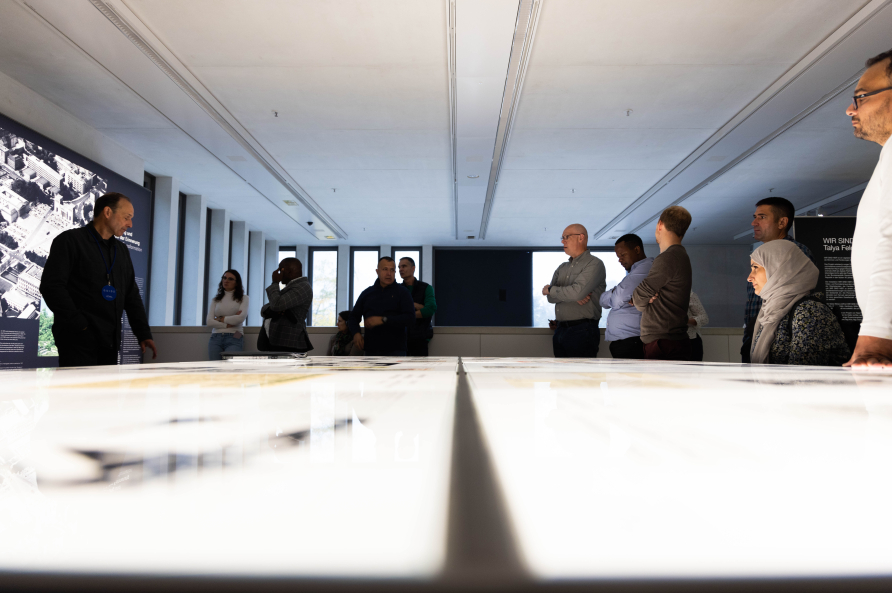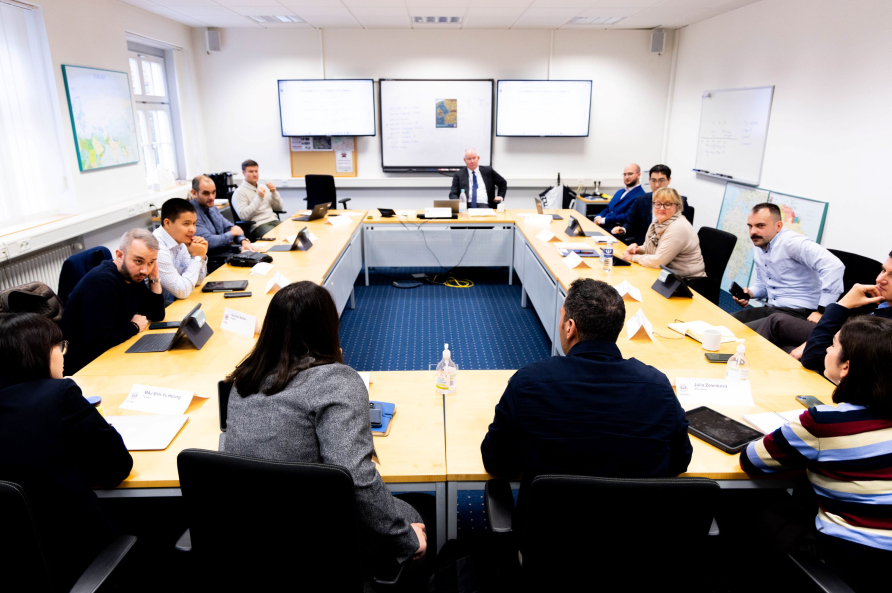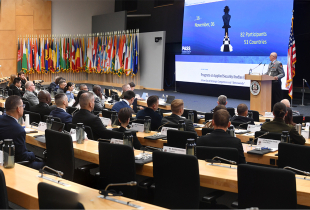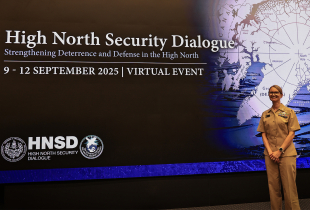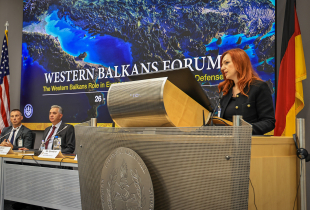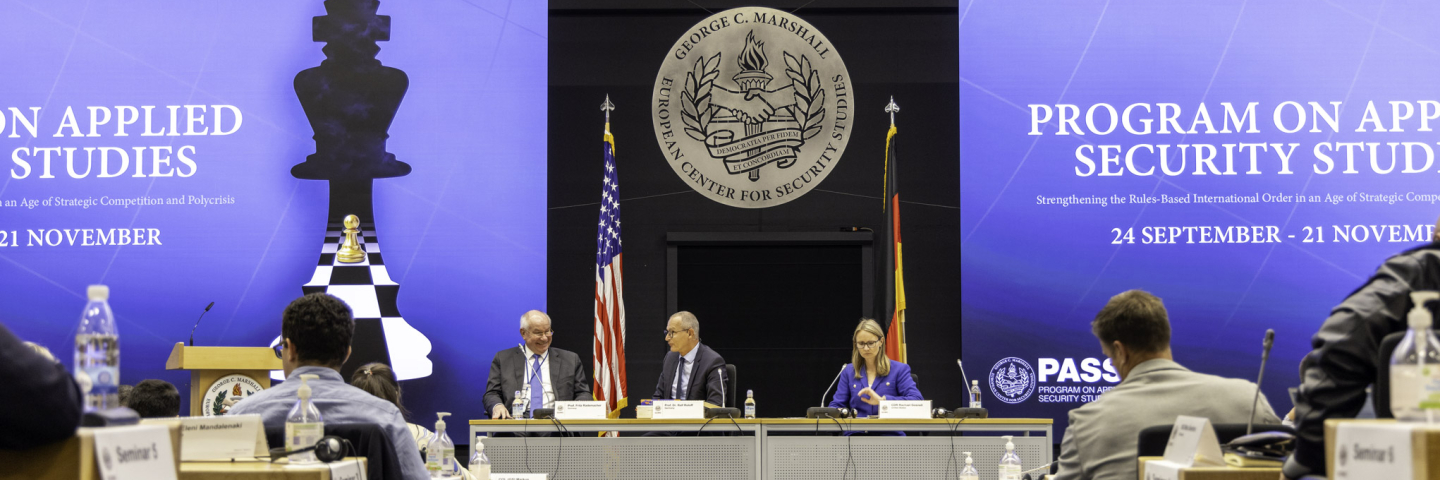
Marshall Center’s Global Impact through the Applied Security Studies Program
GARMISCH-PARTENKIRCHEN, Germany – For nine weeks, the town of Garmisch-Partenkirchen was home to a gathering of 94 security professionals from 52 countries. They came together for the Marshall Center’s flagship Program on Applied Security Studies (PASS), diving into some of the world’s toughest security challenges and strengthening the international bonds needed to address them.
“The diversity of our participants and the topics we tackle make this program unique,” said German Col. Markus Schneider, PASS course director. “It’s not just about solving today’s problems. It’s about building a global network for tomorrow.”
This year’s theme, “The Rule-Based International Order in an Era of Strategic Competition and Polycrises,” hit on a timely reality as the world is navigating complex and overlapping challenges. Participants explored global security trends and solutions through workshops, lectures, seminars, and hands-on exercises.
The program included more than just theory. Study trips to Munich and Berlin offered a concrete perspective, giving participants a closer look at how diplomacy, history, and governance intersect in real-world settings.
What makes PASS special? Its people. This year’s cohort was as diverse as it gets, with civilian and military leaders from five continents and a strong representation of women, who made up nearly 40% of the group. That network is built through education, engagement, and empowering leaders to work together across borders—PASS’s three main goals.
A standout moment for many was the three-day study trip to Berlin, where history, politics, and culture came together. The trip included visits to landmarks like the Memorial to the Murdered Jews of Europe and the Reichstag, meetings at Germany’s Ministry of Defense focused on NATO, EU, and UN roles in global security, and sessions at the Federal Press Office with talks on the importance of a free press.
“The Berlin trip wasn’t just a field study—it was a transformative experience,” said one participant. “It brought everything we’ve learned into focus.”
And, naturally, PASS wasn’t just about serious discussions. Cultural activities added flavor to the experience, with events like a Bavarian evening, classical concerts, and an intercultural night. Local organizations, including the Friends of the Marshall Center Association, helped make these moments possible, fostering stronger connections between participants and the Garmisch community.
The program wrapped up with a keynote by U.S. Ambassador Michele Taylor, the U.S. Permanent Representative to the UN Human Rights Council in Geneva.
“Take what you’ve learned here and use it to meet the challenges of our time,” she said. “Together, we can safeguard the international order and build a safer, fairer, and more peaceful world.”
As this year’s PASS graduates join a global network of alumni, they carry forward the program’s legacy: advancing peace, stability, and security in an ever-changing world.
Since 1993, the Marshall Center has welcomed over 16,500 leaders from more than 160 nations to its programs, helping them address critical security issues while building trust and collaboration. Nestled in the Bavarian Alps, Garmisch-Partenkirchen isn’t just a beautiful backdrop—it’s a hub of U.S.-German partnership and international cooperation.
